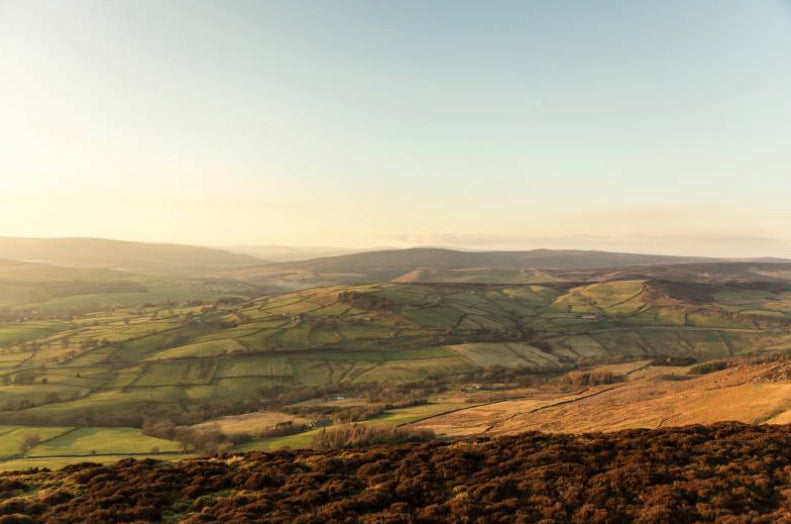
Green is the new black
Did you know that we make 35,000 choices every day? It's no wonder that the number of changes and sacrifices we have to make to reduce our footprint can seem so endless.
I admire those who have adopted a vegan diet, or vowed never to fly again - but there are also more realistic steps that, if taken by the majority, could make an immeasurable difference in tackling the climate crisis.
Whether it's reusing more or using less, where we shop, or how often we enjoy a piece of meat, here are my top actionable steps to living more sustainably.
Appreciate the world on your doorstep
If there's one thing the pandemic's travel restrictions have taught us, it's that we will never again take for granted the options we have in our neighborhood.
The normality of mass tourism and the opportunities to explore incredible parts of the world has made us forget how beautiful our own little country can be - and you can enjoy it without the CO2 emissions of a flight!
Try a vegan steak
There are enough Netflix documentaries out there right now that we now know that becoming vegetarian or vegan is one of the best steps anyone can take to reduce their carbon footprint.
And while going completely 'cold turkey' is too much to ask for many, the growth of 'flexitarianism' is impressive to see.
Aiming to eat more vegetarian food during the week is the way to start.
Try to view fish and meat consumption as a treat rather than the norm. This way you will really appreciate it more.
If you eat meat, try to buy it from your local butcher (where they can provide more information about the quality and sustainability of the products) or from a farm butcher.
Join the fashion revolution
The clothing industry is often cited as a sector contributing to climate change in the world.
Regardless, there is no doubt that fast-fashion is contributing to climate change on an alarming scale. If you know that it takes no less than 8000 liters of water to produce the cotton for just 1 pair of jeans, then you know enough.
While many fashion houses are concerned with the need to produce clothing more sustainably, the real fault lies in our overconsumption of clothing and the tendency to treat items as disposable - in other words, fast-fashion.
The solution is to choose quality over quantity, and buy only what we really need.
Go more plastic-free
Did you know that at the end of 2020, man-made materials outweighed the Earth's entire biomass?
And that the amount of plastic alone is now greater than the mass of all land and sea animals combined?
How confrontational is that?
And given that some types of plastic take up to 500 years to break down, that mass will unfortunately not decrease quickly.
Let us think of this when we again quickly turn to our disposable plastic water bottles instead of our glass drinking bottle as a convenience solution.


